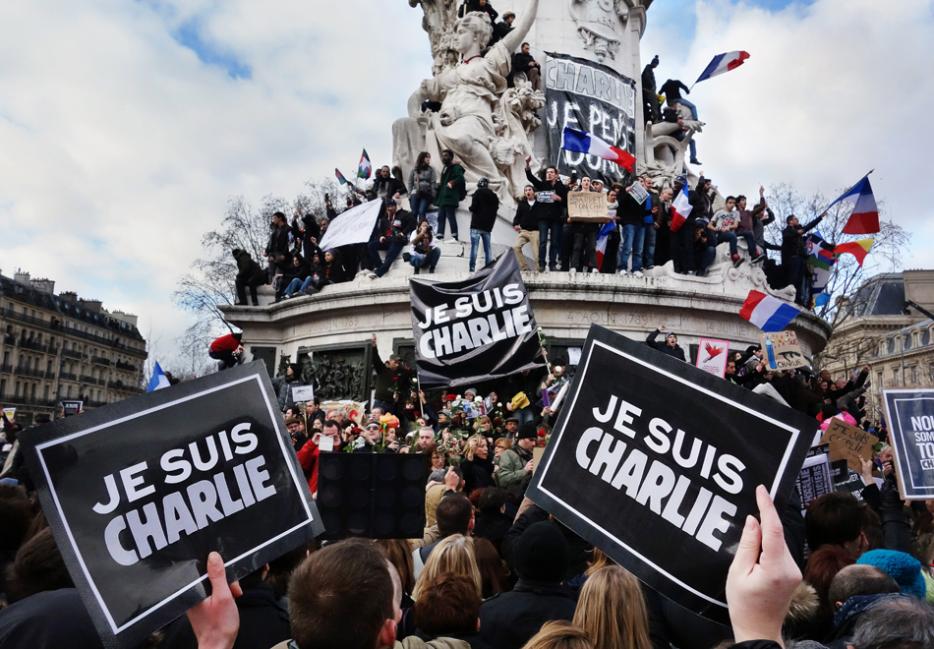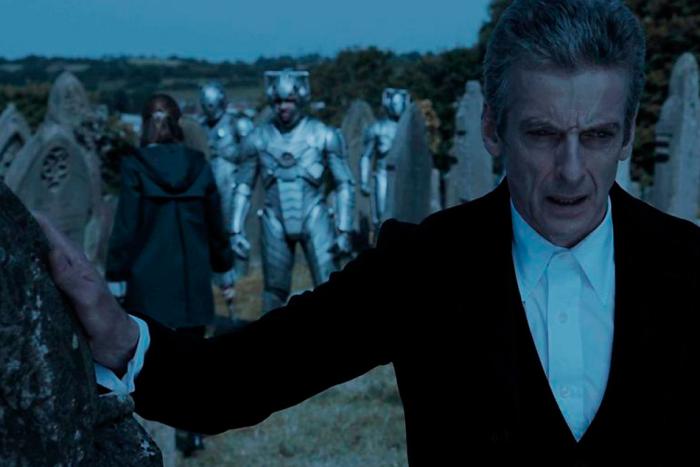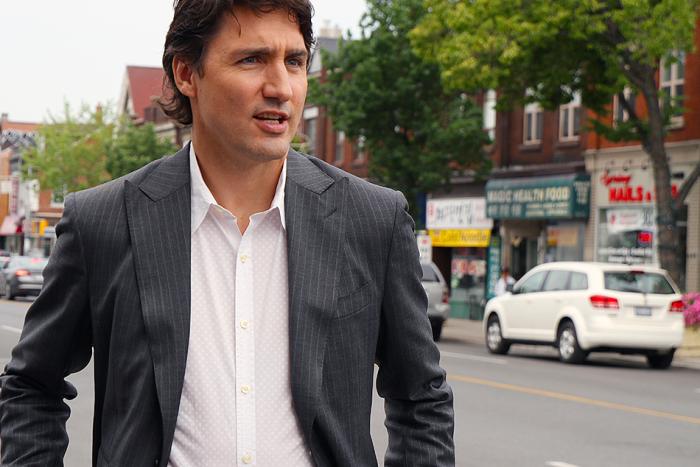What was important to us in 2015? Hazlitt’s writers reflect on the quiet reverberations of the year’s big issues, and the loud ring of its smaller ones.
As a Muslim, I like comics. I don’t think that those two statements are mutually exclusive, and yet, humor is so rarely tethered to the Muslim identity—one that is rife with clichés. I often feel that in people’s reactions to my Muslim-ness, or any amorphous Muslim identity, the fear is palpable, as is the discomfort. Yet, there is something unduly comical about the shock directed towards me, and my spiritual brethren.
I grew up reading comics. Batman, duh; Watchmen, of course. I was fond of getting lost in tales of superheroes, and super villains. I liked stories of overcoming adversity; I liked the concept of justice, and learning about the abstraction of life through the jocular tones of comic book spreads. My connection to this art form, and the intersection of its definitions (through literature and art), has been longstanding. As a child, I’d regularly be taken to exhibitions of artists who had the naive sensibility of caricature contrasted with an underbelly of a scathingly brash political satire. My father’s favorite TV show was the BBC’s satirical sitcom Yes Minister (and later Yes, Prime Minister when, you know, he won an election) and as a teen I consumed the likes of The Daily Show, The Colbert Report, et al. I’m not an anomaly. Comedy can be a conduit for compassion.
Three days before my birthday this year—January 7th—brothers Saïd and Chérif Kouachi walked into the offices of the French satirical weekly newspaper Charlie Hebdo in Paris and murdered eleven members of the Charlie Hebdo team with assault rifles. On their way out of the building they also killed a French policeman. Twelve people in total murdered in mere moments; tragedy always strikes so fast.
The world responded; people began to write Je Suis Charlie on Facebook walls; dictators came together along with 3.7 million others and walked the streets with black and white signs calling for peace. It inspired a revelatory mourning that was targeted towards a naive assumption. “Je Suis Charlie,” meaning I am Charlie, we are one, together, we are united.
The unfortunate thing is, of course, that we’re not.
*
Throughout those miasmic days that followed the Charlie Hebdo shootings, Muslim masses were charged with delivering explanations for our religion’s supposed inherent violence. Meanwhile, children as young as eight years old were brought to police stations for refusing to say “Je Suis Charlie.”
In Separate and Dominate, released just after the Charlie Hebdo attacks, the French writer and theorist Christine Delphy (who also co-founded the journal Nouvelles questions féministes with Simone de Beauvoir in 1977) wrote: “None of the media bothered to mention that Islam is the religion or culture of the most underprivileged and loathed people in France, regularly denounced by not-at-all subversive dailies and weeklies, and that it does not take much anti-comformism and even less courage to draw cartoons packed with racist jokes.”
In the fall of 2014, a few months before the massacre, a book-length pamphlet by Eric Zemmour circulated around France, prophesying the replacement of the French population by (ominous music) Muslims. It became a bestseller. In an interview with an Italian newspaper, the author said French Muslims should be deported, you know, to somewhere—he didn’t say where.
In acts of racism, or in dehumanization, cultural relativism should be put to rest. It’s absurdly incongruent to see people swathing banners of “freedom” when they can’t understand its true concept: freedom implies responsibility.
Similarly, French writer Michel Houellebecq’s latest novel Submission postulates a future when Islam (in the year 2022) takes over France, and everyone has to convert. As he types types types on his keyboard, piling away such pithy prose, I wonder if he understands how what he writes wreaks maddeningly of Orientalism. Earlier in the 2000s when he faced trial for calling Islam “the dumbest religion,” Houellebecq was acquitted on the grounds of “freedom of expression.”Submission was published on the same day as the Charlie Hebdo shootings, furthering his racist prophecy. This is the vanguard of slow-minded liberal whiteness, myopia imposed through righteousness. My freedom of expression is to acknowledge that.
*
I live in Montreal, and a few weeks after the attacks, in a local coffee shop where the beans spill into the air clashing with the live percussion, I overheard a man, in French, explain that Charlie Hebdo was a cultural figure that represented “sticking it to the man.” He, to his partner, explained that it had historically denigrated right-wing policies, considering itself plurally left, or anti-racist, a symbol of resistance, of freedom.
There is nothing wrong with considering the merit of something whilst criticizing it. I wanted to tell this man, and his handsome companion, that people or platforms in positions of power don’t dictate what is and isn’t “racist” for others. They don’t get to decide what is or isn’t offensive to me. The reality of France—and the world—is that the working class isn’t monochromatically white anymore; it now contains a spectrum of racialized people. People with backgrounds of war, of discrimination, of violence, and especially: victims of the multi-dimensional impact of white imperialism, and its terrifying legacy.
As a person who is also a variegated left-winger, I am offended by the drawings of Mohammed that Charlie Hebdo would gleefully publish. Anybody who would take the time tounderstand Islam would know that depicting the Prophet is a jarring offense—that in most Muslim art, Mohammed was depicted with a large bulbous white turban covering his full face.
In acts of racism, or in dehumanization, cultural relativism should be put to rest. It’s absurdly incongruent to see people swathing banners of “freedom” when they can’t understand its true concept: freedom implies responsibility. My favorite quote from my favorite art critic, Dave Hickey, currently stands: “Savaging the weak is not funny.”
*
When Americans are killed by Islamist terrorists—like the one American victim in the Paris attacks in November—there’s sympathy, there is pain. When Muslims are killed by air strikes, drone attacks, or the results of war, the response is pallid, unforgiving and incalculably stark.
When three students, Deah Shaddy Barakat, his wife, Yusor Mohammad Abu-Salha, 21, and her sister, Razan Mohammad Abu-Salha, 19, were gunned down this year outside of their homes in Chapel Hill, North Carolina, there was a sense of communal mourning, but also snarky speculation. On Facebook people gathered to question what was said before the gunman (and their neighbor) Craig Stephen Hicks chose murder as a response. What triggered him?—an acquittal only ever offered to white killers. The supposed “parking dispute” took its turn spiraling the media, as if that was a reason to kill three people in cold blood. Anything to deny this was a hate crime, or the impact of a steadily ubiquitous and nefarious Islamophobia.
*
The morning after the Paris attacks, I woke up heavy headed. My father had written to me saying that none of our family had died in Paris, and that the Daesh were abhorrently cruel, yet unsurprising. Before me I had a twelve-hour shoot for a film about the Arab Spring, in which I played the title character. I was away from comfort, or support; I felt emotionally fatigued. Yet, the ferocity of my Muslim identity moved through me like a boiling sticky wave. I felt a hunger to be understood, for this pain to stop, resolutely. In that moment, as I sat on a bony swivel chair, reading my email, there was none of the shame that I had felt my whole upbringing, just a pure kind of usurping sadness. A frustration; for my people who have been ravaged by an “anonymous” misery that doesn’t want to have transparency—but demands nothing less from Muslims. I saw the hellish rapacity of Western dominance that is systematically coarse and strident in its takedown. So what remains is this: I will not be silent.
As Donald Trump declares that there should be a “complete shutdown” on Muslims entering the United States, am I surprised? Not in the least. People have been chanting a skewed version of this statement since those planes struck the Twin Towers almost fifteen years ago. But now college presidents are encouraging students to buy guns “to end those Muslims”; another presidential candidate, Ben Carson, explains the Founding Fathers wouldn’t trust a Muslim president because they have “different loyalties”; a sixth-grader in New York has her hijab pulled off and is punched repetitively whilst being called “ISIS”—this is Islamophobia. I don’t want to sing a maudlin ballad for my fellow Muslims. I want to say this: Muslim terrorism has a very distinct history; learn it. Muslim terrorism is not teleological; understand it.
The classic form of discrimination is exercised through a false sense of universalism. We talk about “us” in universal rhythms while we stage wars in Muslim majority countries. We talk about the Daesh’s victim count, but don’t understand that it derives its pleasure from Islamophobia, from wiping out “moderate Muslims,” and that it distinctly wants this. We refuse to see the roots of these issues, but blame a global population of over one billion people for it. Islamic terrorism hasn’t occurred in a vacuum, and this is why visibility is vital—is it precisely what society can’t tolerate. If people wanted to hear from Muslims, they could have asked us a long time ago.
There is no locus of comparison for Muslims right now. To say the current wave of Islamophobia is reminiscent of the pre-Holocaust era, when Europe was even more anti-Semitic than it currently is, would be abstractly insensitive. We can talk about Islamophobia without referencing other horrific historical events. We can care about people, with our own emotional and intellectual acuity, without talking about past terrors where people were also once dehumanized. We should care about people—of all backgrounds and religious faiths—without the need to consult our shame. Assigning our guilt to the past does nothing to alleviate how we deal with Islamophobia now; how we codify indefinite military detention of Americans on US soil; how we make unfounded assumptions that Islam is the root cause of terrorism; how the war on terror (with an intense death toll in Afghanistan, Somalia, Iraq, Yemen, and Pakistan) is sustained through the dehumanization of Muslims. It counts on it.
Sophistry against Islam and Muslims is a political act. It’s calculated. In times like this, it’s important to realize that Islamophobia is an open and shut case, but is it fair? There’s no historical precedent for what’s happening now, but that doesn’t dismiss it, or invalidate it. It’s a real thing, but diagnosing it isn’t a conclusion—now, how do we move forward?






